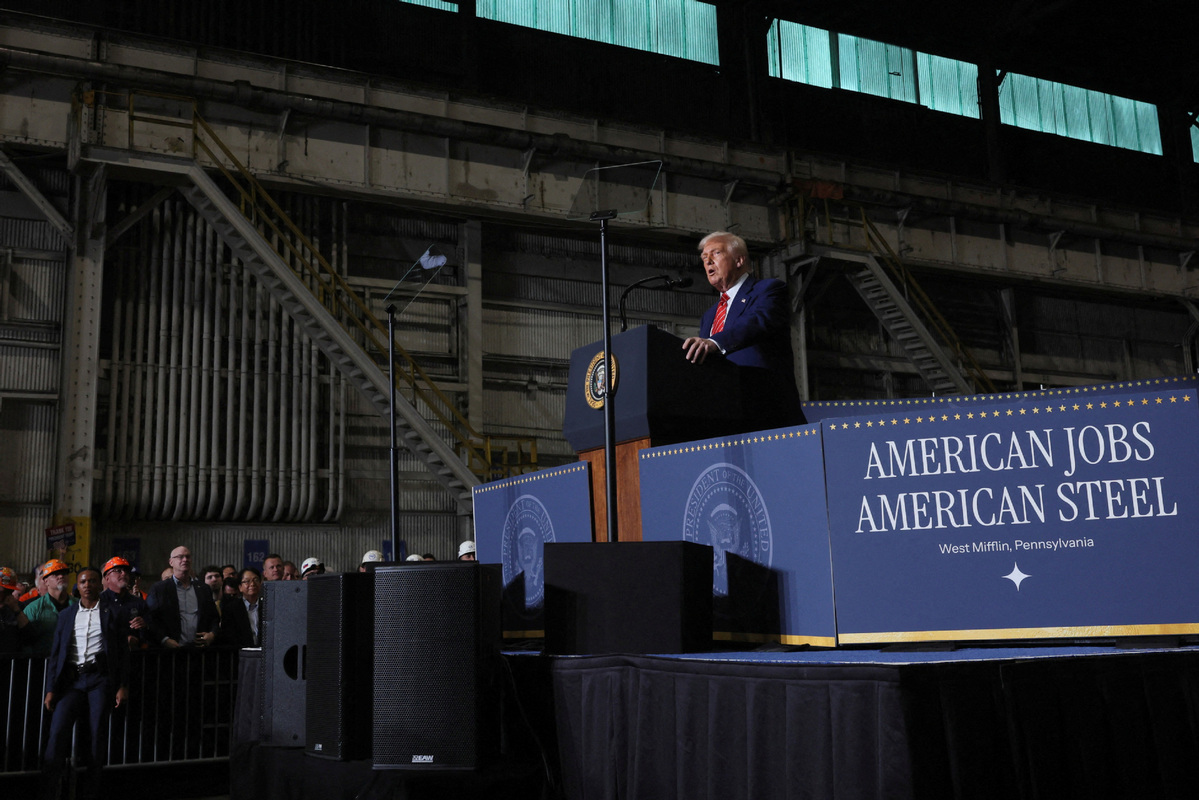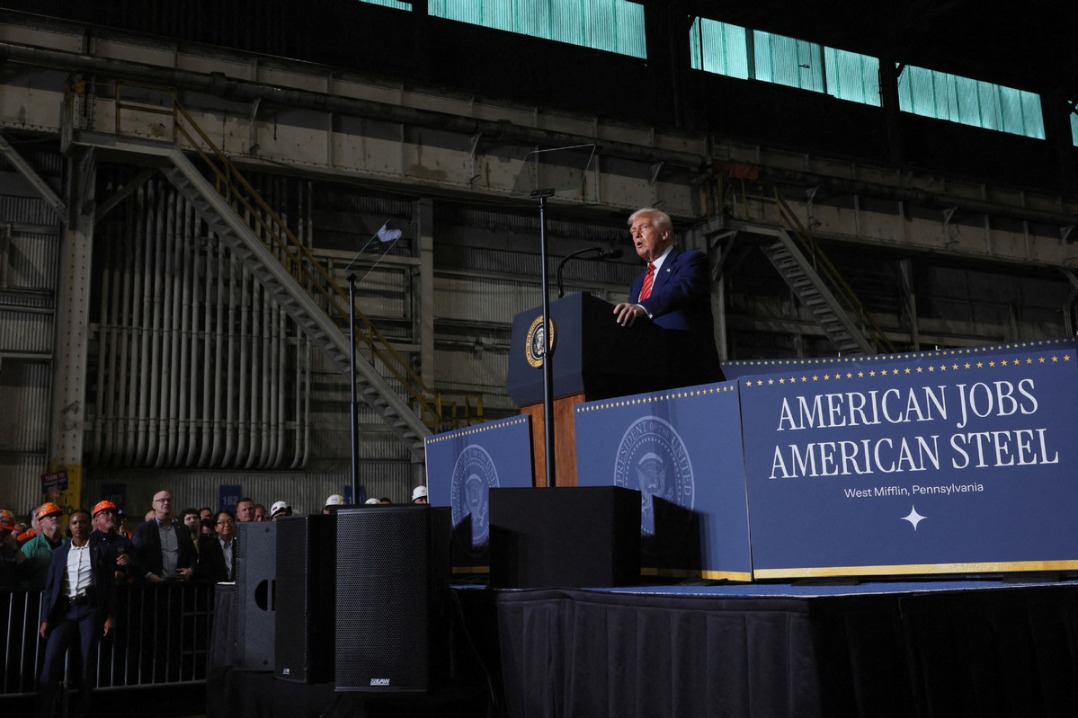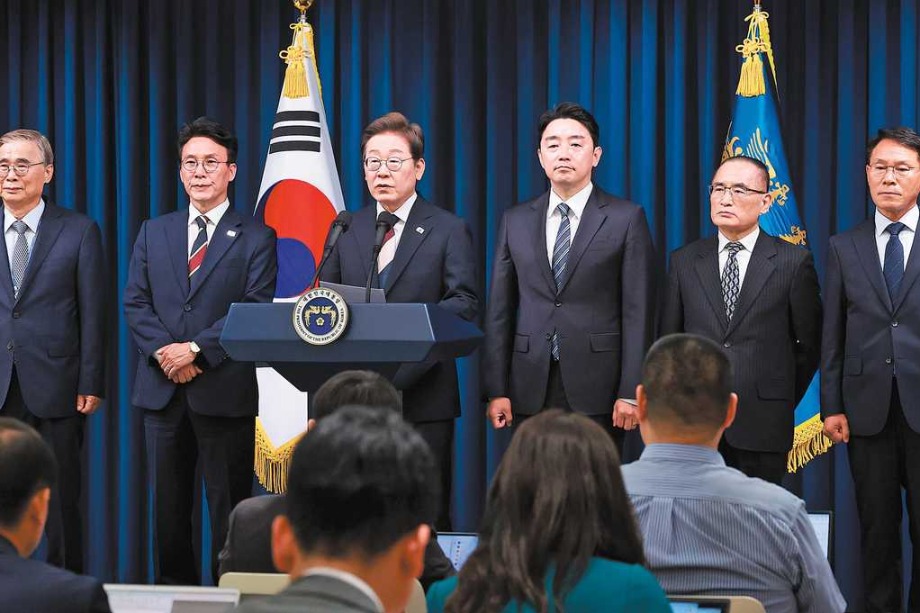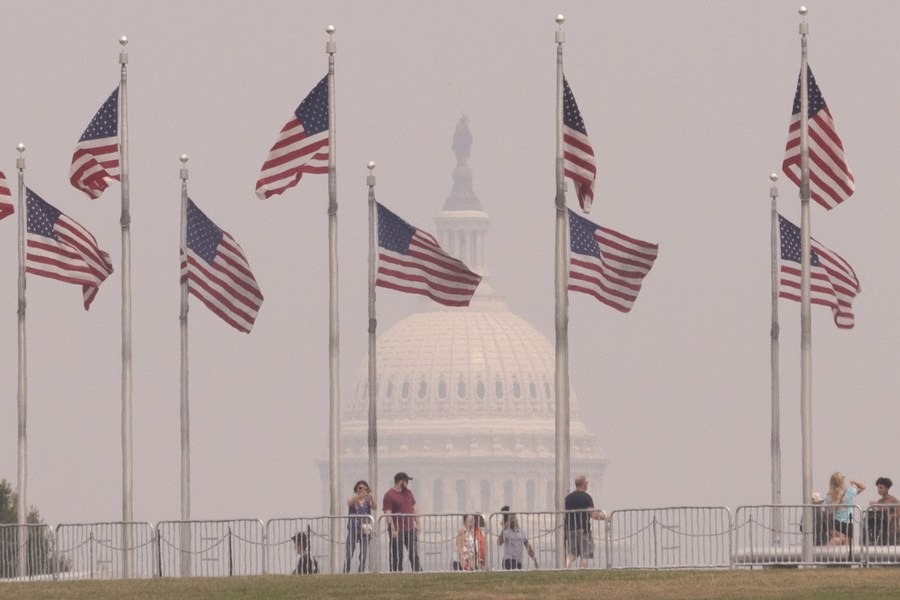New steel, aluminum tariffs stoke global uncertainty


The US administration doubled the tariffs on steel and aluminum imports to 50 percent on Wednesday.
The move comes as the US steel manufacturing industry has faced a steep decline in recent years. The bulk of US steel and aluminum imports came from Canada.
The United States, one of the world's largest importers of steel, got 26.2 million metric tons from 79 countries and territories in 2024, according to the US International Trade Administration.
US President Donald Trump made the tariff announcement at a US Steel Corp facility in West Mifflin, Pennsylvania, on Friday. "At 25 percent, (US trading partners) can sort of get over that fence," he said. "At 50 percent, nobody's getting over that fence."
The EU, a key exporter of steel to the US, said it "regretted" that the levies would be doubled.
It currently faces 25 percent tariffs on steel and automobiles, as well as "reciprocal tariffs" on most EU goods at 20 percent, which are reduced to 10 percent during a 90-day US pause scheduled to end on July 8.
A spokesman for the European Commission, the EU's executive office which oversees trade policy for the 27-nation bloc, told the BBC that it "adds further uncertainty to the global economy and increases costs for consumers and businesses on both sides of the Atlantic".
Ulrike Hoffmann-Burchardi, CIO for global equities at UBS Global Wealth Management, said in a note on June 2 that "we continue to expect market volatility as investors digest fresh tariff headlines and incoming US economic data".
The uncertainty over the trade war is causing the global economy to slow to its weakest pace since the COVID-19 pandemic, the Organisation for Economic Co-operation and Development said in a report on Tuesday.
"Weakened economic prospects will be felt around the world, with almost no exception," said Alvaro Pereira, chief economist at the OECD. It suggested trade barriers need to be eased to encourage growth.
Another wrinkle in the tariff debate emerged last week when the US Court of Appeals for the Federal Circuit ruled on May 29 that the Trump administration could still impose tariffs on US trading partners. It had been temporarily blocked from doing so by the US Court of International Trade, based in New York. The appeals court ordered the plaintiffs to respond by June 5 and the government to reply by June 9.
belindarobinson@chinadailyusa.com

































